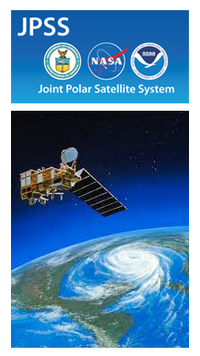Report from Washington, D.C.
Hearing Questions JPSS-1 Readiness
Written by: developer
 At a Nov. 16 Senate Subcommittee on Oceans, Atmosphere, Fisheries, and Coast Guard hearing on Weathering Change: Need for Continued Innovation in Forecasting and Prediction, Sen. Olympia Snowe, R-Maine, expressed concern about recent Government Accountability Office (GA0) reports indicating that the Joint Polar Satellite System JPSS-1 mission may be delayed by technical development problems.
At a Nov. 16 Senate Subcommittee on Oceans, Atmosphere, Fisheries, and Coast Guard hearing on Weathering Change: Need for Continued Innovation in Forecasting and Prediction, Sen. Olympia Snowe, R-Maine, expressed concern about recent Government Accountability Office (GA0) reports indicating that the Joint Polar Satellite System JPSS-1 mission may be delayed by technical development problems.
A polar-orbiting operational environmental satellite system procured by the National Oceanic and Atmospheric Administration (NOAA) through the National Aeronautics and Space Administration (NASA), JPSS is slated to provide continuity of critical observations for accurate weather forecasting, reliable severe storm outlooks, global measurements of atmospheric and oceanic conditions such as sea surface temperatures, ozone and more.
JPSS will also monitor rescue beacons through NOAA’s Search and Rescue Satellite Aided Tracking (SARSAT) system that uses NOAA satellites in low-earth and geostationary orbits to detect and locate mariners, aviators and recreational enthusiasts in distress almost anywhere in the world at anytime and in almost any condition. NOAA-SARSAT is a part of the international Cospas-Sarsat Program to which 41 nations and two independent SAR organizations belong.
Witnesses at the hearing included:
- The Honorable Mary M. Glackin, deputy under secretary for operations, NOAA
- The Honorable Todd J. Zinser, inspector general, U.S. Department of Commerce
- David C. Trimble, director, natural resources and environment, Government Accountability Office
- RDML Cari B. Thomas, USCG, director of response policy, U.S. Coast Guard
- Tom Iseman, program director, water policy and implementation, climate adaptation, Western Governors’ Association
- Dr. Peter P. Neilley, vice president, global forecasting services, The Weather Channel Companies
- Robert Marshall, president and chief executive officer, Earth Networks
Glackin said nothing can eliminate the threat of severe weather, but NOAA has shown success in predicting these events and reducing their impacts by helping people to be more prepared.
This article is part of Space Watch: December 2011 (Volume: 10, Issue: 12).
